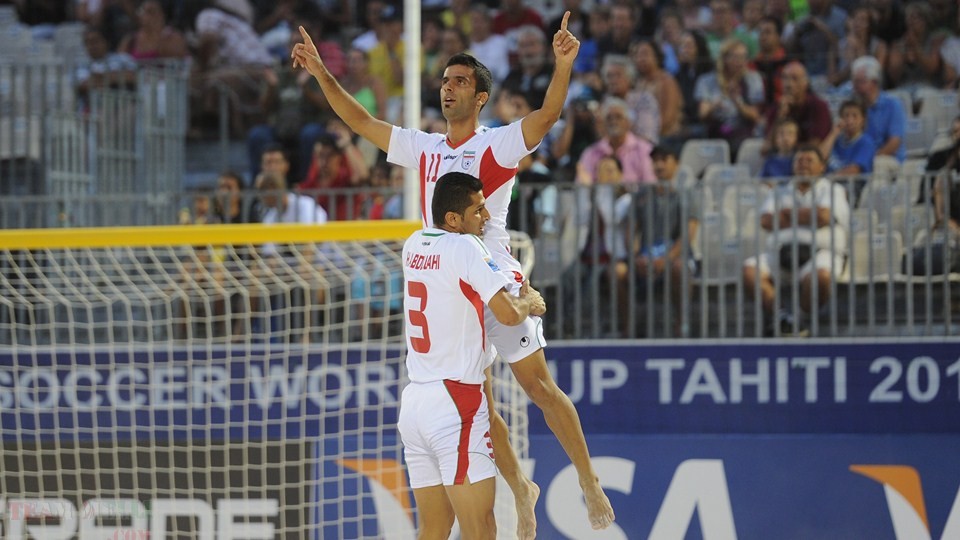With winter making way for spring, the attention of many in the football world has turned to Doha, the capital of Qatar, where current weather conditions look ideal for the upcoming AFC Beach Soccer Championship, which doubles as the Asian qualifying tournament for the FIFA Beach Soccer World Cup Portugal 2015.
No fewer than 14 teams are scheduled to take part in the event, which is being staged on Katara Beach for the second successive time. A temporary stadium, which will welcome thousands of fans between 23 and 28 March, has been set up right in the heart of the cultural district.
By the end of the tournament, three teams will have earned the right to represent Asia in the Portuguese seaside town of Espinho in July. FIFA.com runs the rule over the sides likely to capture those coveted World Cup berths.
The favourites
Since the very first set of Asian qualifiers in 2006, only a select band of nations have advanced to the Beach Soccer World Cup. Iran, who have made great progress in recent years and emerged victorious from the 2013 qualifying tournament, are among that group and will be highly fancied to book their place at the World Cup for a sixth time. Last time around at Tahiti 2013, the Iranians raised eyebrows by reaching the quarter-finals, where they lost a closely contested match to eventual world champions Russia.
Another team to watch will be Japan, who have taken part in every Beach Soccer World Cup so far, with a fourth-place finish at Rio de Janeiro 2005 and three quarter-final appearances – including one at Tahiti 2013, where they lost out to Brazil – to show for their efforts. The Samurai Blue have previously captured the continental crown on two occasions, in 2009 and 2011, and lost a tight final to Iran in 2013.
The United Arab Emirates, meanwhile, can point to successes in 2007 and 2008, which represent two of the four times they have qualified for the final stages, including 2009, where they hosted the competition proper. Having never got beyond the group stage of the Beach Soccer World Cup, the Emiratis will be keen to put that right on Portuguese sands.
The challengers
Bahrain, despite missing out on Ravenna/Italy 2011 and Tahiti 2013, will also fancy their chances of making an impact, having topped the Asian pile in 2006 and reached the final versus Japan in 2009.
Oman, meanwhile, will try to take inspiration from their qualifying performances in 2011, when they finished second, but will also be anxious to erase memories of their disappointing displays in Ravenna.
The outsiders
Every qualifying competition produces its own surprise package, and some observers suspect that host nation Qatar could fulfil that role this year. In order to do so, Al-Annabi (The Maroon) will probably have to top Group A, thereby avoiding Japan, who will be big favourites to win Group B.
China, who have competed in every Asian qualifying phase but have never qualified for the Beach Soccer World Cup, are anxious to finally make a significant breakthrough. If the Chinese finish behind Japan in their section, they will have to lock horns with the winners of Group A.
Elsewhere, Lebanon will be hopeful of bettering the eighth place they secured last time out, and the new format adopted for this year certainly facilitates that task.
The stat
4 – The number of teams that have triumphed in the Asian qualifying phase, namely Bahrain, UAE (twice), Japan (twice) and Iran.
The groups
Group A: Qatar, Oman, Bahrain, Laos
Group B: Japan, China, Kuwait, Vietnam
Group C: UAE, Iraq, Uzbekistan
Group D: Iran, Lebanon, Thailand

